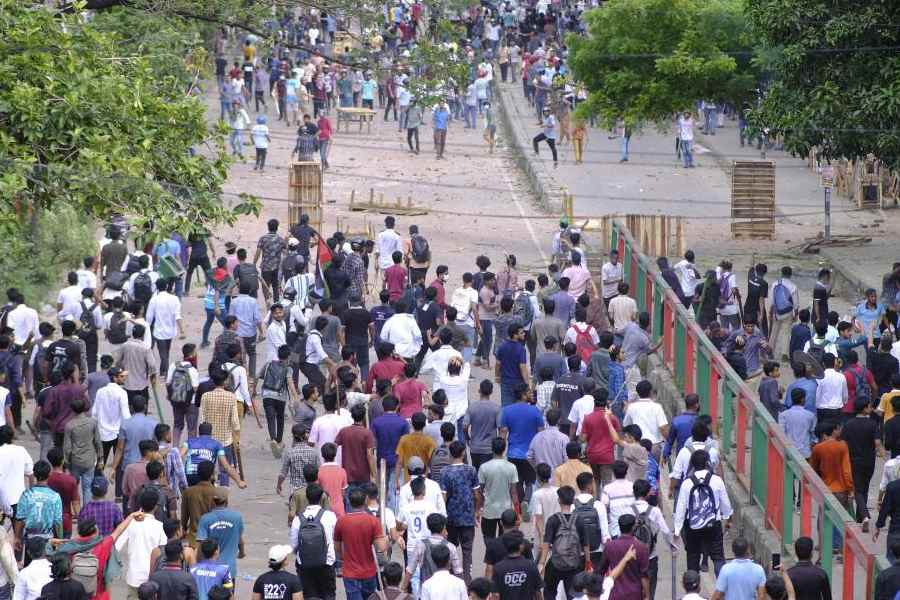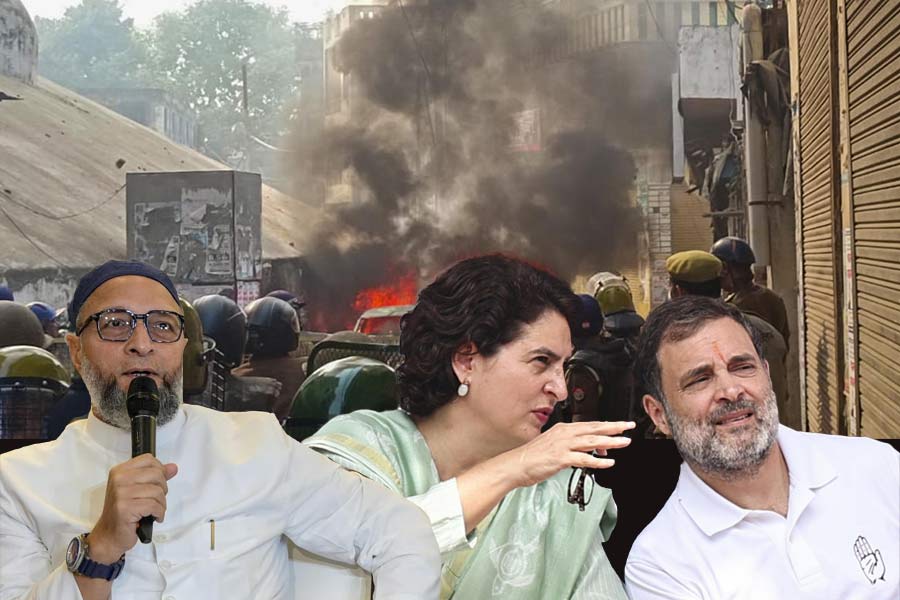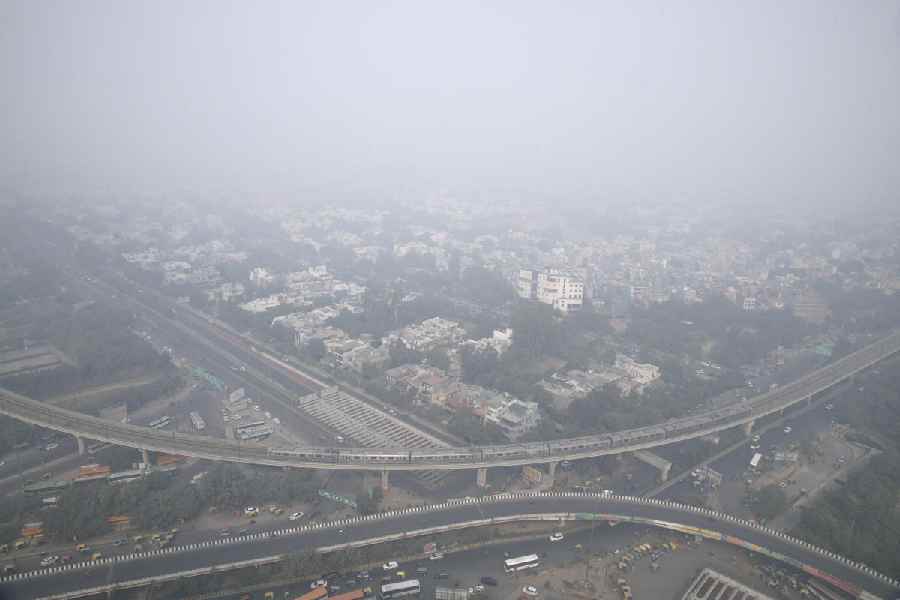The Bangladesh government on Thursday expressed willingness to hold talks with the students protesting against the quota system in jobs after fresh violence erupted across the country as they attempted to enforce a nationwide shutdown over the issue.
Authorities deployed Border Guard Bangladesh personnel across the country including the capital, to maintain law and order, the official BSS news agency reported.
Addressing a press conference, Law Minister Anisul Huq said the government decided to sit in for a dialogue with protesting students and entrusted him and Education Minister Mohibul Hassan Chowdhury with the task of the discussion.
"Whenever they agree, we will sit...it could be held this (Thursday) afternoon even,” he said.
"Government has agreed to hold talks with the quota reformists," he told journalists at a press briefing.
He also said Bangladesh Prime Minister Sheikh Hasina asked the law minister to take the initiative to hold an early hearing of the quota-related case pending with the Supreme Court.
He said he has already instructed the Attorney General to take the initiative on this, and the AG will file an appeal with the Supreme Court on Sunday seeking an early hearing of the case.
The government has decided to form a judicial probe committee led by High Court Justice Khandaker Diliruzzaman to investigate the violent incidents that have claimed at least seven lives, including four students.
The committee will be formed upon receiving approval from the chief justice.
The law minister also requested the protesters to either end or suspend their protest as the government is ready to hold talks with them.
Fresh violence erupted in Bangladesh on Thursday after an overnight lull as thousands of students attempted to enforce a nationwide shutdown.
Mainstream media and witnesses said the protesters clashed with police, leaving many people injured and prompting people to stay indoors. Owners preferred to keep many shopping malls shut.
According to TV footage, riot police fired rubber bullets and tear gas canisters to disperse protesters while students aligned with Prime Minister Sheikh Hasina’s ruling Awami League confronted them on the streets with bricks and bamboo sticks.
Witnesses said the protesters laid a siege on the state-run Bangladesh Television Bhaban in the Rampura area in Dhaka and damaged its front side while some 1,200 staff, including journalists, were stranded inside. The protestors overnight vowed to enforce a “complete shutdown” after days of demonstrations and violent clashes that left at least seven dead.
The seventh death was reported on Thursday in Dhaka.
Government offices and banks were open as paramilitary Border Guard Bangladesh (BGB), riot police and elite anti-crime Rapid Action Battalion (RAB) patrolled streets in Dhaka and other major cities, but the attendance appeared thin because of limited transport.
Many offices asked their staff to work from home.
Bus services between Dhaka and the rest of the country were also cut off, with people staying at home.
Staff members at different bus counters in Dhaka's Gabtoli and Sayedabad Bus Terminal told The Daily Star that bus owners have asked them not to run any buses on the roads.
Many bus counters at the terminal were closed. Additionally, buses were seen standing idle in queues at the terminal, our correspondent reports from the spot.
Local markets and shopping malls had limited entry points open. Some roadside shops were open, while others remained closed.
The clashes erupted on Monday as activists of ruling Awami League’s student front confronted the protestors who insist the existing quota system was largely debarring the enrolment of meritorious students in government services. Demonstrators accused the ruling party’s student wing, Bangladesh Chhatra League of attacking their “peaceful protests” with backing from the police.
Fifty-six per cent of government jobs are reserved under the current quota system, with 30 being for the descendants of the 1971 Liberation War freedom fighters, 10 per cent for backward administrative districts, 10 per cent for women, five per cent for ethnic minority groups and one per cent for the handicapped people.
Every year some 3,000 government jobs open up to nearly 400,000 graduates.
The protestors waged the campaign for the reform of the system, saying it was debarring meritorious students’ recruitment in first-class and second-class government jobs.
Except for the headline, this story has not been edited by The Telegraph Online staff and has been published from a syndicated feed.











